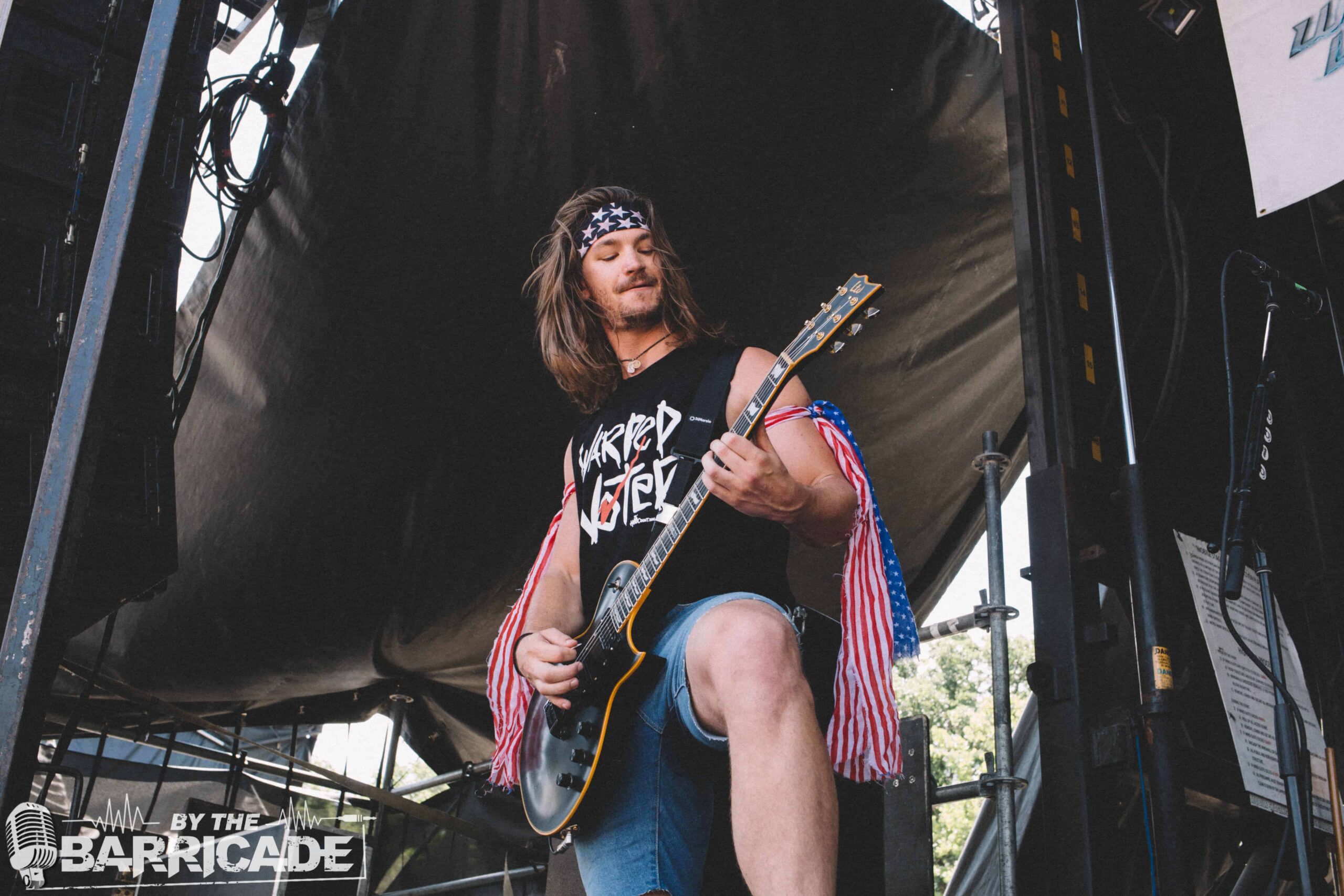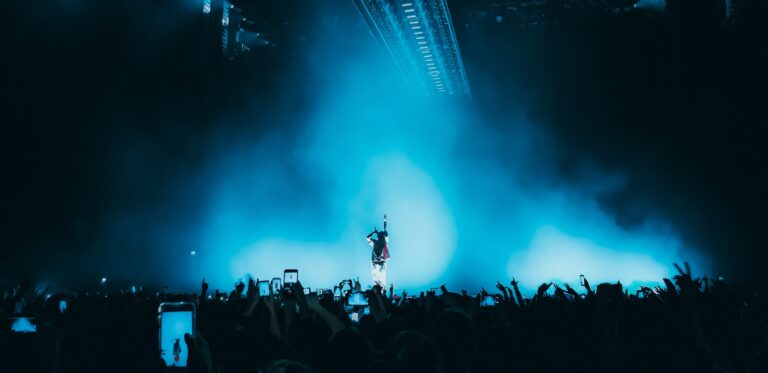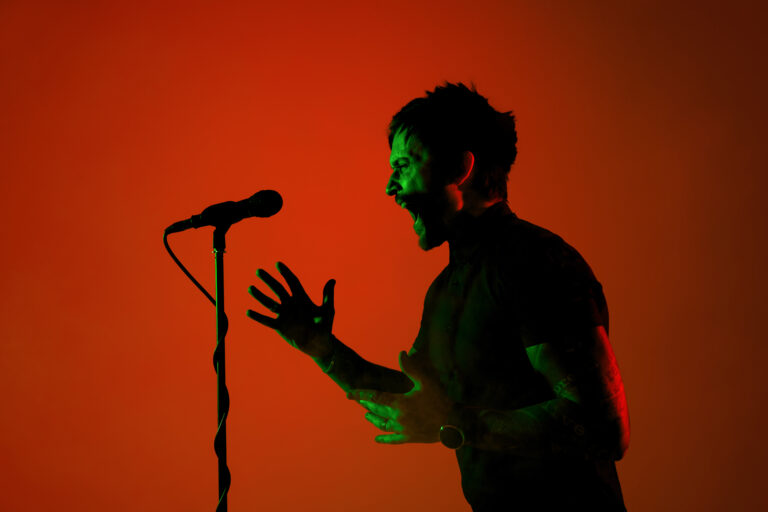Why Are Concerts So Loud?
Depending on who you are, you may think that the best rock concerts are those that make your ears bleed. There is no doubt that the noise of the concerts is incredibly intense. The ringing in your ears is just a symptom of that awesome experience.
But loud concerts seem to apply in a multitude of genres. Regardless of it being a rock concert or an acoustic jam, you may be feeling the ear ringing effects days after the concert. That brings us to an important question:
Why are concerts so loud? Most concerts are located in places that aren’t great for sound quality: like stadiums and gymnasiums. Sound engineers struggle to make sure that everyone in the band is heard in these venues. This encourages the band to have high levels of energy during a performance.
Below, we are going to get into some further detail on loud concerts. We will also get into ways you can protect your ears during these performances.
Why Are Concerts So Loud?
Can you imagine a music concert with weak speakers? It is impossible to make a good performance and ensure all fans can hear the artists and enjoy the music if the volume is too quiet.
Another reason is that most big concerts are held at the stadiums, which are huge open spaces. The design of football stadiums and sports arenas gives fans a good view, but it also creates a lot of reverb. For this reason, artists have to turn the volume up, as it is the only way to prevent reverbing.
Still, many artists do not perform in stadiums. Reverb is not a problem in bars or smaller venues, so why do they need to be loud? As you might guess, the most common reason for too high volume at the concerts is drums.
Drum noise is about 119 dB, so other performers need to try hard to overcome that noise. This can get complicated in smaller places, as drums tend to overpower other instruments.
Some artists prefer using electronic music instead of real drums. For example, hip hop, which is the most popular genre in the United States, is mostly electronic music. As a result, the artists do not have to compete with drum noise.
Nevertheless, even hip hop concerts are pretty loud. So what is the actual reason for that? It may sound funny, but the artists do it just because they want their concerts to be loud. Loud music intensifies the experience for both audience and performers.
The Loudness War
Artists believe they can gain more attention by increasing the volume of their music. Some artists experience “loudness envy,” where artists focus on comparing their music with another artist’s over-compressed music.
Many artists continue to perform and record loud music because of this comparison. Some may think that louder, more compressed music will lead to higher sales. The desire to become the loudest band has started the loudness war between artists in the 1940s, still alive today.
Metallica is one such victim of the loudness war, as their album Death Magnetic has received harsh criticism. Numerous fans were complaining about its excessive loudness. Some of them stated that the Guitar Hero version had higher quality compression.
Nevertheless, it should not be the case. While the high volume at concerts might be nice for performers, it worsens the concert experience and makes it less enjoyable for everybody else. It forces most visitors to wear earplugs to avoid hearing loss.
There are numerous ways to run energetic and enjoyable concerts without making them this loud. For the benefit of all music lovers, sound technicians and showrunners need to turn the volume down. Otherwise, the concert can be harmful.
Here’s a video with some of the loudest gigs ever played.
Can Loud Music Hurt My Ears?
Loud noises (such as music, jet engines, or machinery) often cause partial hearing loss. The mechanism inside your ears may be damaged if the music is so loud that you must shout to be heard. In most advanced cases, hearing loss may result in deafness.
Many long-time musicians also suffer from hearing loss issues. These include the following:
- Ozzy Osbourne
- Barbra Streisand
- Neil Young
- Sting
Temporary hearing loss often happens after exposure to incredibly loud noises. Usually, it goes away after a while (for example, after night’s sleep), but you will not be able to hear until that time. For this reason, you should wear protection next time you are around loud noise, as it is the only way to avoid permanent hearing loss.
Hearing usually returns to normal, but you can continuously lose your hearing permanently if you listen to loud music or noise. Permanent hearing loss occurs if you are exposed to high-volume music or loud noise over a long time, like every day.
In extreme cases, you may give yourself tinnitus.
What Is Tinnitus?
Tinnitus is a phenomenon of hearing muffled ringing in your ears, which is often a sign that you are standing too close to the source of the noise. The loud music or noises may damage the finest hair cells that line your ears, causing annoying pain and discomfort.
This ringing may be sporadic or constant, and it often appears as other sounds like buzzing, whistling, or roaring. Usually, tinnitus from the music concert resolves itself within a few hours or days.
How Loud Is Too Loud?
While the decibel level of the typical conversation ranges between 40 and 60 decibels, the decibel level of a music concert is more than 110 decibels. It can reach almost 140 decibels if you stand close to the speakers.
Constant exposure to high noise levels (85 decibels and more) is harmful to your health. According to the National Institute on Deafness and Other Communication Disorders, heavy traffic produces 85 decibels of noise. The revving and roaring of a motorbike are as loud as 95 decibels, signals and alarms are 120 decibels, and the fireworks and firearms can be louder than 150 decibels.
So next time you spend a few days at the music festival, remember that it is comparable to listening to the noise of sirens or an all-day fireworks display. Serial festival-goers are constantly doing damage to their ears.
How To Prevent Hearing Damage At Concerts
Avoid staying too close to speakers since the noise there often goes up to over 120 decibels. This loud music can permanently damage your hearing within a few seconds.
Also, remember to wear good earplugs or other hearing protection. Besides, let your ears rest for a while, as it gives them some time to recover. It will be a good idea to take a quick visit to the restroom, get a drink outside the festival tent, or walk around in places where the music is less loud.
Below are a couple of other tips to keep in mind.
How Do Earplugs Work?
While the average decibel level of the music concert is around 100 decibels, wearing the earplugs allows you to reduce the noise by 15 to 30 decibels, taking the volume down to a safer level. These small devices can help you stay at the concert or festival all day long without any health problems.
You can also purchase earmuffs, which are typically better for high-frequency sounds. In extreme situations, you can combine the two.
How To Stop Ringing Ears
You might think earplugs damper the experience, but they’re also a lifeline for your ears.
- Alcohol enhances the ringing, causing blood to flow into your inner ears, so it will be better to reduce its consumption.
- Wear earplugs each time you go to a concert.
- In addition to alcohol, there are many other tinnitus stimulants you should avoid. They include amphetamine, caffeine, and others.
If you are a musician, you can also consider a Sound Limiter to avoid sound damage.
What Is A Sound Limiter?
Given the opportunity, even acoustic shows can rock your socks off with noise. But this can be avoided with a sound limiter.
A sound limiter is used by smaller venues (like coffee shops and bars) to prevent a band from blowing up the neighborhood. In some cases, it can be used in those small venues to have a solid experience while avoiding blown eardrums.
Some venues have them built into the microphones. They are often programmed to shut off in the band goes over a certain threshold. If you want to be extra careful, ask the venue if they have a limiter installed for their live music.
Outdoor festivals take a creative approach to avoid noise complaints.
How do festivals avoid noise complaints?
As outdoor festivals grew, so did the number of noise complaints from angry neighbors. There have been dozens of inventions to help festivals avoid complaints from neighbors.
Many modern speakers allow musicians to focus sound away from residential areas. The video below displays one such example.
Conclusion
There are several reasons why music concerts are so loud. Concerts held at the football stadiums or other sports arenas must be loud, as it is the only way to ensure everyone can hear the music.
Nevertheless, the most common reason is the artists’ personal preferences. These personal preferences are born from the Loudness War, which is still going on today.
They want their music to be so loud, making it impossible for some people to enjoy it. Therefore, you need to reduce the noise by standing far from speakers and wearing earplugs. It is the best way to enjoy the concert and avoid hearing problems.
—
Keep it on Bythebarricade.com for tons of punk rock interviews, reviews, articles, and photos! Also, “Like” By the Barricade on Facebook to never miss a post.








